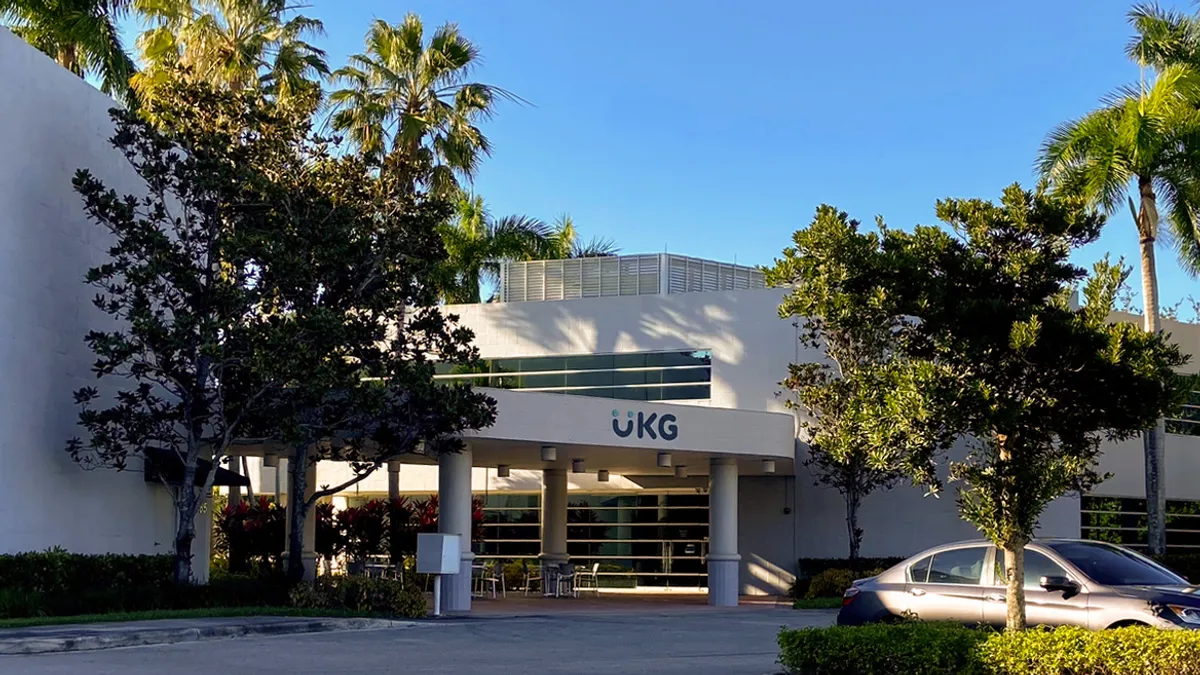Dive Brief:
- Parties in the case of Pallotta v. University of Massachusetts Memorial Medical Center have reached a $1.2 million settlement agreement, according to court documents filed Sept. 1. The lawsuit in the U.S. District Court of Massachusetts pertains to the 2021 ransomware attack on UKG.
- During the resulting software outage, health system UMass Memorial Health instituted a “payment freeze” for its hourly workers lasting several days. The claimants who received money did so seeking redress for damages suffered by the outage, which affected UKG’s Kronos Private Cloud product.
- Per the brief, UMass defendants will fund an all-in payment of $1.2 million, including direct payments to the claimants, along with attorney’s fees, litigation costs, settlement administration costs and service award payments. Class members are entitled to an average award of nearly $375.
Dive Insight:
The brief mentions that previous UKG cases did not yield as much redress for claimants. Those cases include Woodruff v. Kaiser Aluminum Corp., Marshall v. Coca-Cola Consolidated Inc. and Estevez v. Change Healthcare Inc., neither of which provided for average recovery north of $344 per class member.
The ongoing fallout from the ransomware attack against Kronos serves as a cautionary case study, reinforcing the reality that employers are on the hook for payroll failures — something that cybersecurity experts have emphasized. Beyond the above-mentioned employers, Tesla, PepsiCo and New York’s Metropolitan Transportation Authority have been called to the carpet in class action suits. Still, UKG has already paid millions in damages regarding the 2021 outage.
Lessons learned from the outage are largely that HR should have a backup plan in place. During the Kronos attack, many institutions were caught short; some were able to pay workers on time, noting that adjustments were to come in the future.
Attorneys previously told HR Dive that immediate logging of hours worked — and fast pivots to back-up procedures, such as conventional checks or taking advantage of direct deposits — would be crucial as workers’ memories may become murky over time.













